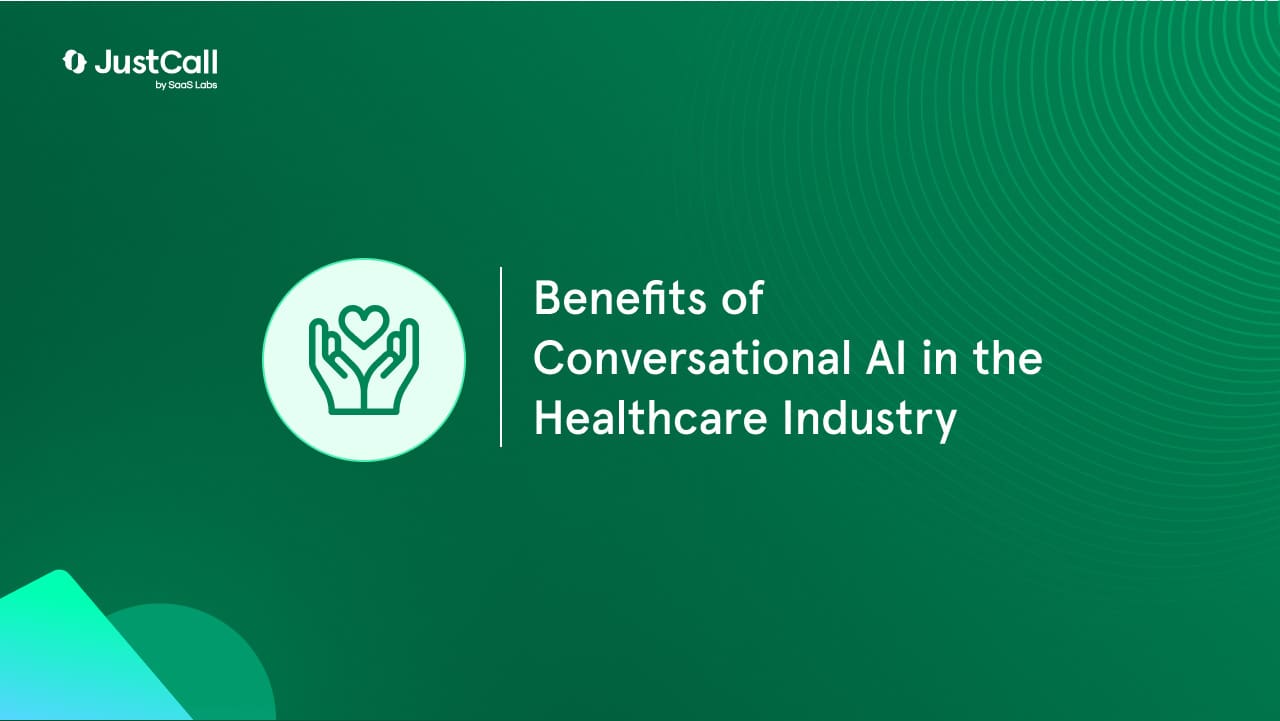In the last few years, artificial intelligence (AI) has taken over operations in several industries. Healthcare is not far behind. In an industry that runs primarily on the manual skill of doctors, nurses, and other healthcare workers, AI technology has integrated seamlessly into crucial procedures to ensure scaling and optimization.
Conversational AI is now powering customer interactions in several sectors. Since the COVID-19 pandemic, the volume of conversational AI interactions has increased by 250% in multiple types of businesses.
In healthcare as well, virtual assistants and AI bots have impacted patients and caregivers alike. With the growth of computing and data storage, AI platforms can now work with minimal human interference to provide effective results.
In this article, we’ll discuss what conversational AI is and the benefits of AI in healthcare.
What is Conversational AI?
Conversational AI refers to platforms that use AI technology like Natural Language Processing (NLP) and machine learning to hold conversations with users. They have the ability to understand users’ context/intent and generate responses to queries.
Conversational AI is a more advanced form of virtual assistants and is built to simulate actual human conversations. This may include chatbots, voice bots, interactive voice assistants (IVA), etc.
The advantages of using AI in the medical field are varied, ranging from workflow optimization to diagnosis, risk assessment, treatment decisions, chronic disease management, risk identification, and so on.
Let’s explore the AI benefits in healthcare in more detail.
Benefits of Conversational AI in Healthcare
There are several benefits of using AI in healthcare for doctors, nurses, administrative staff, and patients.
Customer Management
Often, admin tasks take a backseat at hospitals and medical centers due to large query volumes. To combat this, organizations have started leveraging AI assistants to deal with customers’ routine queries.
With conversational AI, you can automate tasks by scheduling appointment availability, providing round-the-clock support, addressing basic doubts, booking tests and doctor visits, sharing information about tests and procedures, etc.
This reduces the pressure on customer support teams to provide timely responses to all queries.
FAQ Resolution
Patients often have questions that seem urgent to them but do not require the manual intervention of healthcare workers. These can be addressed through an FAQ knowledge base created as a self-service method based on conversational AI.
Organizations can create an AI conversational interface with a search function to deliver engaging responses and store information about frequently asked questions. This saves a lot of time for both staff and patients and optimizes the customer support process.
Health Tracking
One of the AI advantages in healthcare is patient health tracking. Apart from emergency and routine hospital visits, patients need information and access to tools for regular health monitoring.
Conversational AI platforms can help patients track personal health goals, guide them towards specific actions, identify patterns, and provide routine tips to manage their own health. It can also help in contacting healthcare professionals whenever deemed necessary.
For example, track body weight, blood pressure, medications, etc., with the help of AI assistants that provide updates and reminders to ensure a healthy lifestyle.
Patient Data Tracking
The core of any AI system is data. Conversational AI can collect and analyze patient data at scale to create valuable insights. These insights can be used to deliver more contextual responses and also improve the quality of assistance and patient experience.
For example, you can identify trends in patient bookings and doctors’ availability, store patient records, gather actionable insights, and make informed decisions through AI-generated data.
The findings can also be used to provide appropriate consultation to patients and optimize resource allocation across the industry.
Health Advisory
The pandemic highlighted the need for a system to disseminate health information publicly. Conversational AI can be one such system to broadcast health advisory and remove misinformation.
In a sensitive industry like healthcare, it is important to have a technology that can combat the spread of inaccuracies and false information. AI can do so by disseminating recommended advice, providing regular population updates, highlighting health guidelines, and detailing which symptoms to take seriously.
Not only does this reduce public health risks, but it also alleviates some of the pressure on healthcare staff during tough times.
Use Powerful Conversation Insights to Drive Call Center Success
Final Thoughts
The benefits of artificial intelligence in medicine are still being explored, and new applications are being identified regularly. With customer support tasks like scheduling appointments and answering queries, conversational AI also helps in internal communication, employee hiring and training, post-treatment care, and so on.
The goal of conversational AI is to substitute human interaction and achieve similar, if not better, results in a shorter time period. With AI-based conversational intelligence platforms like JustCall, you can optimize several admin tasks, leverage real-time insights, and boost productivity in your organization. This is the future of healthcare assistance, and it’s time to get on board with it!












